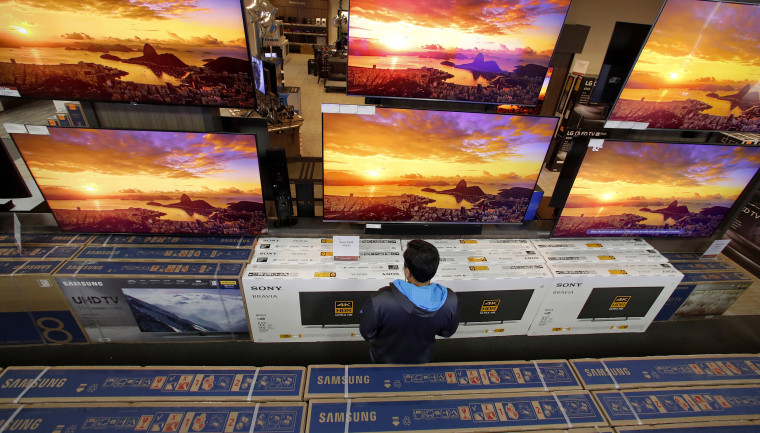President Donald Trump may call himself a "tariff man," but economists say he largely misstated how tariffs work on Tuesday.
The president fired off a series of tweets aimed at China on Tuesday, threatening more tariffs on the country if the two economic powers can't reach a "real" trade deal and seeming to double down on his belief that the foreign nation ultimately foots the bill for those fees.
Remember, Trump tweeted, "...I am a Tariff Man. When people or countries come in to raid the great wealth of our Nation, I want them to pay for the privilege of doing so. It will always be the best way to max out our economic power. We are right now taking in $billions in Tariffs. MAKE AMERICA RICH AGAIN,” he wrote in a tweet.
The facts: Tariffs are a fee charged by the U.S. when a good is brought into the U.S. They're designed to make foreign made goods more expensive — thus boosting domestic producers — but that expense, charged to the importer, is typically passed down to American consumers.
"The people who are purchasing foreign goods are paying tariffs," said Columbia Business School professor Amit Khandelwal, who teaches on international trade.
If you went to an electronics store right now and bought a foreign-made, big screen television hit by tariffs, the sale price will likely include a sizeable price hike thanks to the U.S. tariff — potentially to the tune of hundreds of dollars.
Sometimes, foreign corporations are willing to cut their prices to keep consumers from seeing the tariffs currently levied on Chinese goods — which can profit the U.S. without affecting consumers — but economists told NBC News that consumers are picking up most, if not all, of the tab for Trump's tarriffs right now.
Columbia University professor David Weinstein, an expert in international trade, said there's some evidence that Chinese corporations may be reducing prices to absorb a fraction of the tariffs to stay more competitive in American markets, but he said consumers are paying most of it.
"Consumers are the losers," he said. "So, if you impose a tariff of 10 percent, domestic prices might go up 8 percent."
However, Trump is correct to say that the U.S. is "taking in" billions from tariffs — a nearly four-month period this spring saw the U.S. collect more than a billion dollars in steel tariffs. But he omits the fact that other nations have slapped U.S. producers with retaliatory tariffs that may hurt American business and that the trade war has rattled the stock market despite strong economic growth.
"There’s a bigger game than just the tariff game," Weinstein said.
Retaliation dampens any benefits found in tariffs and frustrated trade partners too can pressure American corporations in other ways, he added, like refusing permits for American businesses abroad.
Graciela Chicchilnisky, a Columbia University professor focused on international trade and economics, added that American products may hurt too, because foreign imports are routinely used in American production and manufacturing.
“Many of the products that we produce here depend on imported imports, including things like energy or automobile parts or any import,” she told NBC News. "Therefore, for anything we use, we end up paying more."
She pointed to the slew of automaker plant closures that have followed Trump’s tariffs, explaining that the U.S. economy is so globally integrated that supply, production, and demand are all completely connected.
Khandelwal and Weinstein both said tariffs aren't making America rich, as Trump claimed.
Taxes on international trade are just 1.07 percent of American revenue, according to the World Bank.
And what of Trump's argument that tariffs "will always be the best way to max out our economic power?"
"No," Weinstein said with a laugh. "Almost all economists would agree it’s a poor way to do it."

